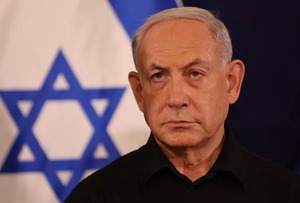1. Saudi Arabian Refuses
For many years, Saudi Arabia has played a significant role in Middle Eastern issues, utilizing significant domestic and international influence. Its policies, especially when it comes to important topics like the Israeli-Palestinian conflict, frequently set an environment for the Arab world. Several Arab countries have recently restored relations with Israel, notably Morocco, Bahrain, and the United Arab Emirates (UAE). The biggest and most powerful Arab nation, Saudi Arabia, is refusing to follow in the absence of a significant resolution to the Palestinian question. Saudi Arabia refuses to recognize Israel in the absence of a Palestinian state.
1. Independence of the Palestinians
The basic principle of Saudi Arabia’s position t genuine regional peace cannot be attained unless the Palestinian people are allowed to exercise their right to independence. The Arab Peace Initiative and the international community have long supported the two-state solution, which the Kingdom has demonstrated by refusing to recognize Israel in the absence of a Palestinian state.
2. Arab Proposal
Saudi Arabia’s 2002 proposal, known as the Arab Peace Initiative, offers Israel a path toward normalizing relations with the Arab world in return for the creation of a state for the Palestinian people based on pre-1967 lines, with East Jerusalem serving as its capital. Unless the Palestinians make major concessions, this approach continues to be the foundation of Saudi Arabia’s foreign policy toward the nation of Israel, and any divergence from it is improbable.
2. Palestinian
Since the dispute between Israel and Palestine first started to take shape in the early 20th century, Saudi Arabia has supported the Palestinian cause. Saudi Arabia, one of the most well-known Arab and Muslim-majority nations, has continuously backed Palestinian rights diplomatically and monetarily.
Saudi Arabia one of the several Arab regimes that opposed the foundation of the State of Israel after it established in 1948, believing it to be a danger to the sovereignty of the Palestinian people. The Kingdom remained steadfast in its support of the Palestinian cause over the years, continuously arguing for their right to independence and opposing any kind of normalization with Israel until the matter settled.
1. Saudi Assistance
During his reign in Saudi Arabia from 1964 to 1975, King Faisal a strong supporter of the Palestinian cause. Famously, he oversaw the 1973 oil embargo, which Saudi Arabia used to exert pressure on Western countries—especially the US—to support Palestinian rights. The Kingdom’s position as a major protector of the Palestinian people cemented at this pivotal period in its history.Saudi arabia refuses of relations with Israel absent Palestine.
Saudi Arabia continued to support the Palestinian cause despite changes in the geopolitical environment throughout time. The leadership of the Kingdom consistently stressed that the Israeli-Palestinian conflict must be fairly resolved in order to bring about stability and peace in the Middle East.
3. The Vision Saudi Arabia
With the Arab Cooperation Initiative, a comprehensive strategy aimed at resolving the Israeli-Palestinian issue and establishing long-lasting peace in the area, Saudi Arabia made a daring move toward peace in 2002. Offering Israel normalized relations with all Arab nations in return for a complete departure from the areas it had captured during the 1967 Six-Day War—including the western West Bank, the Gaza Strip, and East Jerusalem—the initiative was revolutionary.
Based on United Nations Resolution 194, the Arab Peace Initiative demanded the creation of a Palestinian state including East Jerusalem to serve as its capital and a fair settlement for Palestinian refugees. The Arab League supported this effort, which has since gained traction as several Arab states’ official stance on peace with Israel.
1. Two state approach
The two-state an approach which views Israel and Palestine living in peace as independent states, is the central tenet of the initiative. A large portion of the international society, including the European Union and the United Nations, has endorsed this concept. But even with broad backing, the program completely implemented yet, mainly because Israel won’t budge on its fundamental demands.
The Arab Peace Initiative is still Saudi Arabia’s preferred method of settling the Israeli-Palestinian issue. The Kingdom has made it clear time and time again that unless the rights of the Palestinian people are fulfilled under this plan, it will not restore relations with Israel. While other Arab countries have worked toward normalization accords with Israel, the leadership of Saudi Arabia is unwavering in its support of the Palestinian cause, seeing it as both a political and moral necessity.
2. Arab Nations
A number of Arab nations have made the important decision to normalize relations with Israel in recent years. A significant change in the region’s attitude toward Israel brought about by the Abraham Accords, which signed in 2020 by Israel, the United Arab Emirates, Bahrain, and later joined by Sudan and Morocco. These agreements, which aimed to promote scientific, security, and commercial collaboration with Israel, were hailed as a breakthrough in Middle Eastern diplomacy.
The Trump administration saw normalization. of relationships between Israel and the Arab states as an essential part of its Middle Eastern policy, and as such, it played a significant role in supporting the Abraham Accords. The agreements seen as a way to limit Iran’s influence, which Israel and many other Gulf Arab states consider to be a major threat to regional stability. Saudi Arabia Refuses of relations with Israel absent Palestine
3.Saudi Arabia Agreements /Saudia Arabia Refuses
Even though the agreements were praised as a major accomplishment, Saudi Arabia was conspicuously missing from the list of signatories. Saudi officials made it plain that their views on Israel had not altered, despite rumors that the King of Saudi Arabia might follow suit. The Palestinian issue resolved before the Kingdom recognize Israel, as stated by Crown Prince Mohammed bin Salman (MBS).
On the other hand, the agreements of Abraham have changed the Middle East’s geopolitical environment. Several Arab states have shown that they are willing to put beyond the Palestinian issue in order to further their own national goals by establishing relations with Israel. This has increased the pressure on Saudi Arabia to change its position, especially in light of the Kingdom’s efforts to fortify its international ties and modernize its economy.
4. Leadership kingdom
Saudi Arabia, however, is certain that any rapprochement with Israel must be accompanied by significant advancements toward Palestinian statehood in spite of this pressure. The leadership of the Kingdom has made it very evident that the justice of the Palestinians is a prerequisite for Middle East peace, and that the Palestinian issue would always be of utmost importance.
4. The Worldwide Reaction
The international community has responded to Saudi Arabia’s refuses to recognize Israel in the absence of a Palestinian state in a variety of ways. Some have asked Saudi Arabia to reevaluate its position in light of the shifting geopolitical factors, while many Arab and Muslim-majority nations still support the Kingdom’s position.
One of Saudi Arabia’s strongest allies historically, the United States has been instrumental in easing normalization arrangements among Israel and various Arab countries. There was a lot of pressure on Saudi Arabia to sign the Abraham Accords during the Trump presidency. The Biden administration, however, has adopted a more circumspect stance in light of the complexity of the Israeli-Palestinian problem and the Kingdom’s crucial role in the area.
1.Palestine leadership
The leadership of Palestine, who considers Saudi Arabia to be one of their most dependable Arab partners, has commended Saudi Arabia’s position. Mahmoud Abbas, the president of Palestine, has often expressed gratitude to Saudi Arabia for its steadfast support, especially during a period when other Arab countries have sought rapprochement with Israel.
Israel, on the other side, has voiced dissatisfaction with Saudi Arabia’s resistance to restoring diplomatic ties. While Israeli leaders have frequently emphasized the potential security and economic gains from working with the Kingdom, they have also noted that the Palestinian issue still poses a major barrier.
International bodies like the United Nations have also expressed their opinions, underscoring the significance of the two-state solution as the cornerstone of Middle East peace. Both Saudi Arabia and Israel urged by the UN to seek a diplomatic solution that upholds the rights of both Israelis and Palestinians.
5.Peace Achieved?
There is still much disagreement over the possibility of peace between Saudi Arabia and Israel. Normalization will benefit both countries greatly, but the question of Palestinian statehood remains significant. Saudi Arabia does not see the establishment of a Palestinian state as negotiable, and it is doubtful that the Kingdom change its position until this is accomplished.
Though there are a number of possible routes to peace, each has unique difficulties. Reviving the two-state solution, which envisions Israel and Palestine as sovereign states with internationally recognized borders, is one potential remedy. For many years, this has served as the cornerstone of international attempts to end the conflict; but, more recent events, such as the growth of Israeli settlements in the West Bank, have made the realization of this solution more challenging.
An further choice the unilateral proclamation of Palestinian statehood, which supported by several Palestinian officials. This would include the Palestinians announcing their independence and requesting recognition from other countries without permission from Israel. But this strategy might. Saudi Arabia refuses of relations with Israel absent Palestine.
Also Read: Quaid-e-Azam 76th Death Anniversary Rember Beautiful Vision




